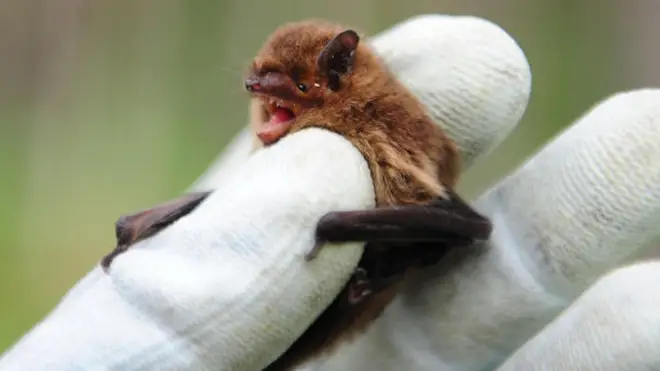
Oli Dugmore 4am - 7am
5 February 2021, 12:20

Climate change could have contributed to the emergence of Sars-CoV-2 by increasing the bat population, scientists have found.
University of Cambridge researchers suggest global greenhouse gas emissions have made southern China a "hotspot" for many bat species that host coronaviruses.
Researchers explain that climate change has devastated the natural habitats in several regions, leading to an influx of an additional 40 bat species moving into the southern Chinese Yunnan province in the past century.
It is believed Sars-CoV-2 - the virus responsible for the Covid-19 pandemic - emerged in this area.
Read more: Minister defends quarantine hotel plan but refuses to comment on number of rooms booked
They harbour around 100 types of bat-borne coronavirus, most of which cannot infect humans, and there are more than 3,000 different types of coronaviruses housed by bat populations around the world.
The researchers said their findings, published in the journal Science of the Total Environment, should encourage governments to "take decisive action to mitigate climate change" in order to reduce health risks from infectious diseases.

'There's clearly a lack of dialogue between the Government'
Professor Andrea Manica, in the University of Cambridge's Department of Zoology, said that the Covid-19 pandemic has caused tremendous social and economic damage.
Manica urged governments to "seize the opportunity to reduce health risks from infectious diseases by taking decisive action to mitigate climate change."
Dr Robert Beyer, a researcher in the University of Cambridge's Department of Zoology, said: "Understanding how the global distribution of bat species has shifted as a result of climate change may be an important step in reconstructing the origin of the Covid-19 outbreak."
Beyer added: "As climate change altered habitats, species left some areas and moved into others - taking their viruses with them.
"This not only altered the regions where viruses are present, but most likely allowed for new interactions between animals and viruses, causing more harmful viruses to be transmitted or evolve."
The researchers said the causes of climate change need to be addressed as part of Covid-19 economic recovery programmes.